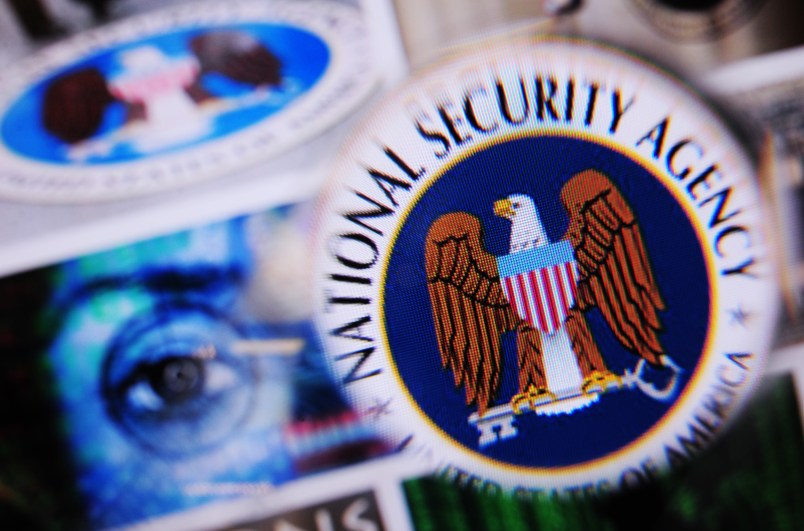WASHINGTON (AP) — The first time the bipartisan Privacy and Civil Liberties Oversight Board dissected a National Security Agency surveillance program, it found fundamental flaws, arguing in a January report that the NSA’s collection of domestic calling records “lacked a viable legal foundation” and should be shut down.
But in its latest study, the five-member board takes the opposite view of a different set of NSA programs revealed last year by former NSA systems administrator Edward Snowden.
The new report, which the board was to vote on Wednesday, found that the NSA’s collection of Internet data within the United States passes constitutional muster and employs “reasonable” safeguards designed to protect the rights of Americans.
The board, whose members were appointed by President Barack Obama, largely endorsed a set of NSA surveillance programs that have provoked worldwide controversy since Snowden disclosed them. However, the board’s report said some aspects of the programs raise privacy concerns meriting new internal intelligence agency safeguards.
Under a provision of the 1978 Foreign Intelligence Surveillance Act known as Section 702, the NSA uses court orders and taps on fiber optic lines to target the data of foreigners living abroad when their emails, web chats, text messages and other communications traverse U.S. telecommunications systems.
Section 702, which was added to the act in 2008, includes the so-called PRISM program, under which the NSA collects foreign intelligence from Google, Facebook, Microsoft, Apple and nearly every other major American technology company.
U.S. intelligence officials and skeptical members of Congress have agreed that Section 702 has been responsible for disrupting a series of terrorist plots and achieving other insights.
The board said the programs have “led the government to identify previously unknown individuals who are involved in international terrorism, and it has played a key role in discovering and disrupting specific terrorist plots aimed at the United States and other countries.”
Because worldwide Internet communications are intermingled on fiber optic lines and in cyberspace, known as the cloud, the collection inevitably sweeps in the communications of Americans with no connection to terrorism or foreign intelligence. Activists have expressed concern that a secret intelligence agency is obtaining private American communications without individual warrants. Some have questioned how such a program could be legal under the Fourth Amendment to the Constitution.
The board, including a Democratic federal judge, two privacy experts and two former Republican Justice Department officials, found that the NSA monitoring was legal and reasonable and that the government takes steps to prevent misuse of Americans’ data. Those steps include “minimization” that leaves out the names of Americans from intelligence reports unless they are relevant.
“Overall, the board finds that the protections contained in the Section 702 minimization procedures are reasonably designed and implemented to ward against the exploitation of information acquired under the program for illegitimate purposes,” said the report. “The board has seen no trace of any such illegitimate activity associated with the program.”
That said, the board noted that the rules “potentially allow a great deal of private information about U.S. persons to be acquired by the government.”
The board was troubled by the “unknown and potentially large scope of the incidental collection of U.S. persons’ communications,” and collection of communications about a target, such as a foreign terrorist organization, that could capture two innocent Americans discussing the organization.
The report proposals some rule-tightening. For example, the board recommends that NSA and CIA analysts query Section 702 data using the names or email addresses of Americans “only if the query is based upon a statement of facts showing that it is reasonably likely to return foreign intelligence information.”
Section 702 has its roots in the Terrorist Surveillance Program, a collection program President George W. Bush ordered after the 9/11 attacks without seeking a change in the law. After administration lawyers deemed aspects of it illegal, and after so-called warrantless wiretapping was disclosed in news reports, Congress essentially legalized the program in 2008.
Obama, then a senator running for president, voted in favor of the bill.







Yup, spying on Americans is at least as legal as invading Iraq, running torture facilities at Gitmo, killing American citizens abroad without a trial, and letting Wall Street fleece the joint. And pretty soon, thanks to the TPP that both Clinton and Obama are stealthily pursuing, it will be “legal” for corporations to challenge ANYTHING that gets in the way of their profit making
So very, very legal. Thank God we have a Constitutional Scholar for a Prez to guide us through this challenging “legal” landscape.
That was in January. And now…PRESTO…LEGAL!
Looks like someone had a little “talk”.
Stuff a big green sock in your phoney dripping outrage. It’s legal. Don’t you have an auto dealer to torch?
Right-Wing Sock Puppets Pretending to Be Liberals Assault Progressive Websites:
The EFF on this ridiculous whitewash:
All Prime Slimer attacks will be ignored. Have a great day!